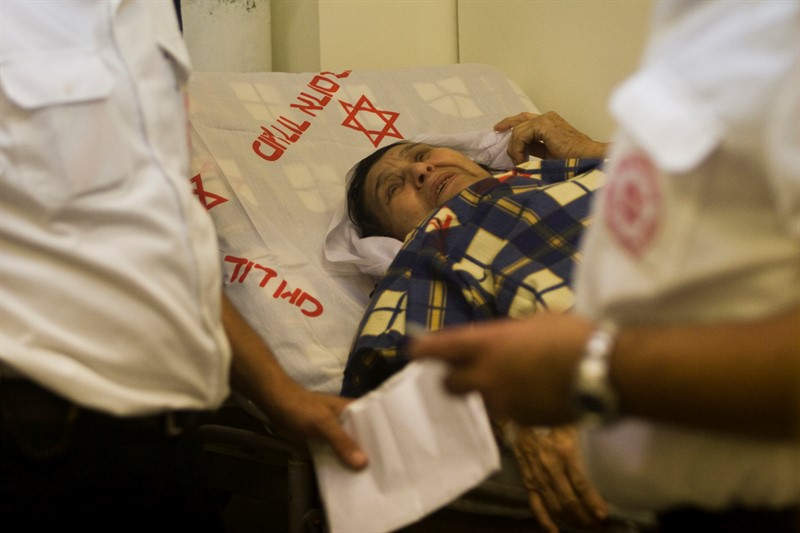Oncologists to the Ministry of Health & CGAT: Let Women Cancer Patients Leave Gaza for Lifesaving Medical Treatment.

Over the past year, Israel has significantly delayed the urgent treatment of at least 45 cancer patients from the Gaza Strip. On Monday, a special hearing will be held in the Knesset Committee on the Status of Women and Gender Equality on the situation of Gazan women under the closure policy.
Today (Sunday), over thirty oncology specialists from Israeli hospitals took the unusual step of calling upon the Ministry of Health and the Coordinator of Government Activities in the Territories (CGAT) to allow women cancer patients form the Gaza Strip to travel for urgent and lifesaving treatments in hospitals in Israel and the West Bank. The signatories include ward directors and senior physicians such as President of Oncology Institute in Sheba Medical Center Prof. Bella Kaufman, Head of the Radiotherapy Department at Beilinson Prof. Eyal Fenig, Director of the Breast Cancer Unit at Assaf HaRofeh Dr. Ella Evron, Head of the Oncology Department in Assuta Haifa Dr. Abed Agbarya, and others.
The physicians have decided to act given the growing difficulties they have been experiencing over the past year in providing continuous treatment to cancer patients arriving at their clinics from the Gaza Strip. This is due to the tightening of the Israeli exit permit policy with regard to Gazan cancer patients. According to data provided by Physicians for Human Rights, over the past year medical treatment has been significantly delayed for at least 45 women cancer patients from Gaza. Some were delayed for six months and even more, and their exit was made possible only thanks to public pressure on the authorities. Today, the exit of fourteen cancer patients from Gaza is prevented by the CGAT at Erez Crossing. Seven of these women have breast cancer, three have thyroid cancer and three others have tumors in their spine, lungs and kidneys.
In their letter, the doctors wrote: “Undoubtedly, the likelihood of cure and the ability to relive the suffering of cancer patients are higher the sooner diagnosis and treatment are provided. On the other hand, there is no doubt that any delay in diagnosis and treatment could lead to the exacerbation of the disease and even death, which are preventable”. The signatories concluded that “there is no justification in delaying the patients’ requests for long months, since every delay has fateful consequences for their chances to recover and survive”.
The letter coincides with the convening of a special hearing of the Knesset Committee on the Status of Women and Gender Equality, chaired by MK Aida Touma-Suleiman, to discuss the situation of women in Gaza under the ongoing closure on the Gaza Strip. The hearing has been initiated by Touma-Suleiman following hundreds of complaints submitted to her office over the past year on the refusal of Israeli authorities to allow freedom of movement for Gazan women for health, studies and work purposes.
Prof. Bella Kaufman, President of Oncology Institute in Sheba Medical Center and Physicians for Human Rights board member: “Precisely given the recent cycle of violence on the border with Gaza, the story of the cancer patients demonstrates the extent to which Israel’s policy with regard to the Palestinian population in the Strip breaks new records of apathy. The women cancer patients require immediate treatment, often to save their lives, and denying them that treatment is unreasonable according to any ethical, humanitarian or international standard- whether this is done due to bureaucratic excuses of which there is never shortage, or ‘security’ pretexts that are always readily available. Israel must show meet its fundamental moral commitment and allow these patients to leave Gaza immediately for medical treatment”.
